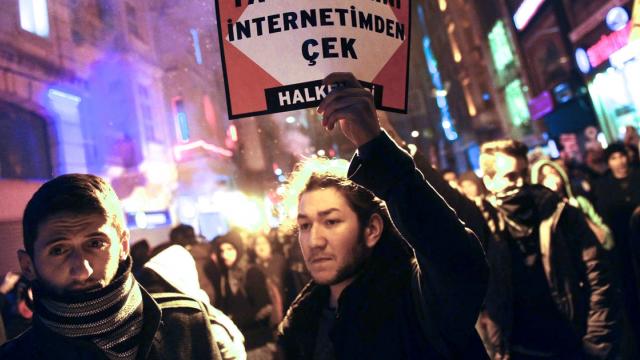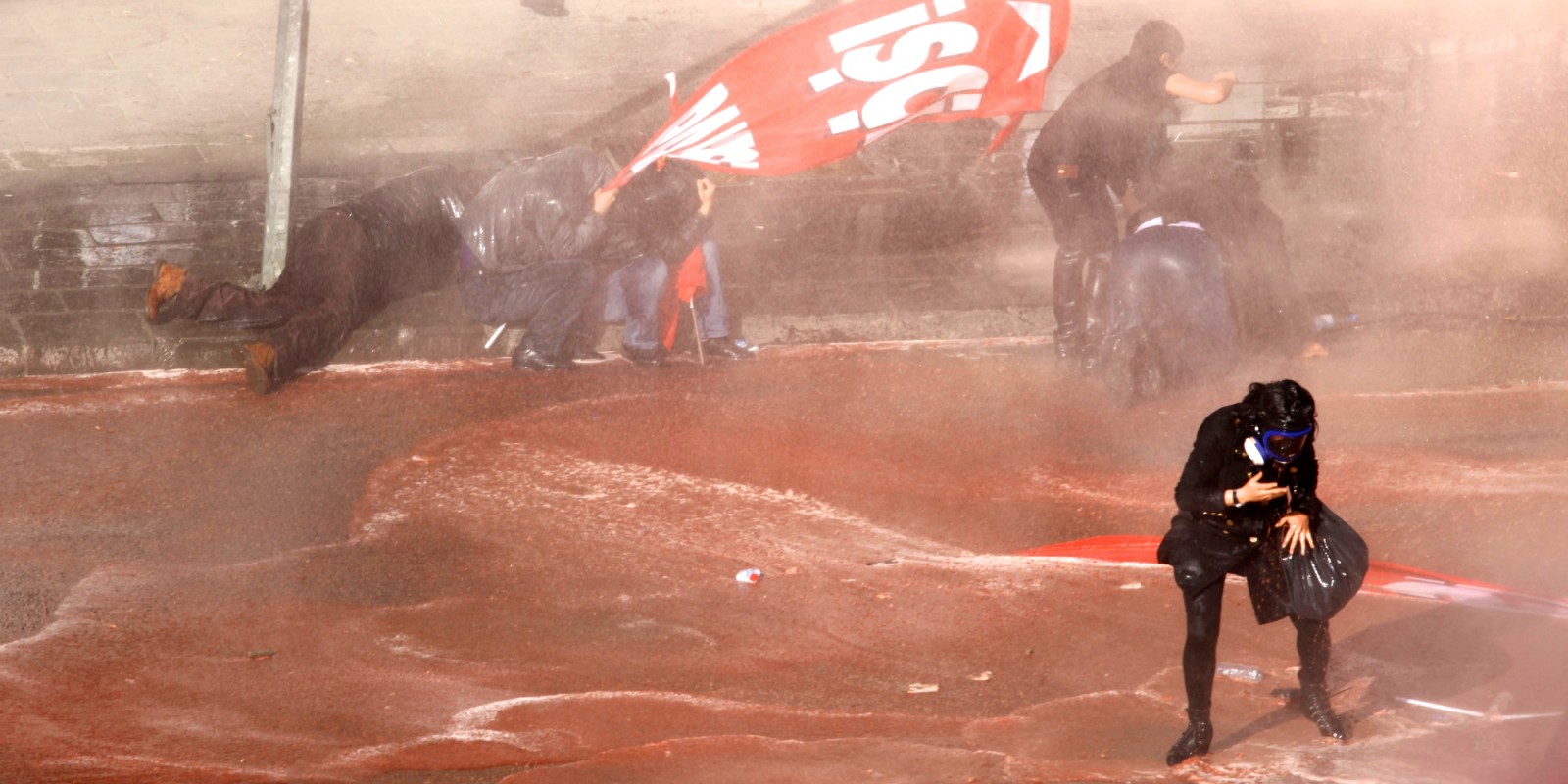
ISTANBUL – Pressure is piling on Turkey – in the streets, from rights groups and even key allies – not to enact a far-sweeping law that would allow authorities to censor the Internet and require ISPs to keep tabs on every subscriber's browsing habits for two years.
Activists have twice taken to the streets in recent weeks chanting, singing, smashing computer equipment and ultimately clashing with teargas and water cannon-wielding riot police in a bid to keep Turkey from tightening its grip on the flow of information in the wake of last spring's violent Gezi Park protests.
"The society in Turkey has already experienced a taste of freedom last year, and there is no going back from that point any longer," said activist Gurkan Ozturan with the Pirate Party of Turkey. "Censorship is a dead investment and waste of public funds."
Human rights organizations and press freedom groups have also lined up against the bill, whose provisions allow the country's telecom authority to order ISPs to remove content within four hours or face huge fines. It also requires providers to keep up to two years' worth of browsing activity of customers.
"It's fascinating for me to see people protesting in the physical world about surveillance issues and really risking their physical well-being for the right to communicate ideas and newsworthy information," said Geoffrey King, Internet advocacy coordinator for the Committee to Protect Journalists in New York.
Since December, top party leaders and their business partners have been embroiled in a corruption scandal that has already caused three cabinet ministers to resign. But Turkey's government has responded by firing hundreds of prosecutors and reassigning thousands of police to effectively stop the probe in its tracks.
The government is pointing fingers at law enforcement loyal to a Pennsylvania-based Islamic sect leader who has broken ranks with the Islamist-rooted ruling AK Party. But the regime of Prime Minister Recep Tayyip Erdoğan has not been able to refute much of the evidence showing how businessmen are able to buy favor with Turkish officials all the way up to the top.
Still, the prime minister insists that the Internet censorship bill, passed by Parliament earlier this month, is to protect children and personal privacy.
"We are not restricting anybody's freedom," Erdoğan, who is head of the Justice and Development Party (AKP), said on Monday. "We are trying to protect our children from ill-intended defrauders and blackmailers."
Turkey already bans an estimated 40,000 websites. Academics say further tightening restrictions is an attempt to contain a political crisis in the run-up to this year's election season.
"It's to limit damage to the government," said Yaman Akdeniz, a law professor at Bilgi University in Istanbul. "It will no longer be about protecting children from harmful content but to protect the government."
This comes as Turkey's top trading partners and strategic allies in Brussels and Washington caution that Turkey is overreaching.
U.S. State Department spokeswoman Jen Psaki said on February 6 that the bill's "measures are not compatible with international standards on freedom of expression."
She added: "They also have the potential to significantly impact free expression, investigative journalism, the protection of journalist sources, political discourse, and access to information over the Internet. So those are all areas we would be concerned about."
The clock is now counting down to February 25 – the last day Turkey's President Abdullah Gül must either sign the bill into law, veto it or let it lapse without coming into effect.
Meanwhile, few have forgotten the show of state violence and media censorship that was government's response to the peaceful nationwide protests – first to preserve a park, then against Erdoğan's authoritarian rule – last spring.
"They are trying to build up a new infrastructure to surveil people and collect data about all internet users from Turkey," added King of the Committee to Protect Journalists. "This obviously has serious implications – unprecedented I would say."
3 WAYS TO SHOW YOUR SUPPORT
- Log in to post comments













